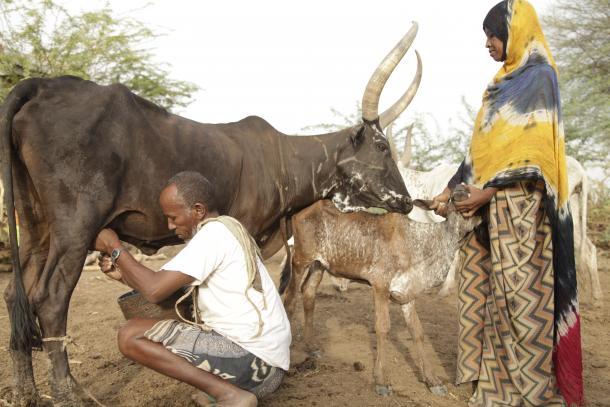Food security in Greater Horn of Africa threatened by poor rainfall
- April 25, 2019
- Posted by: Elaine Coles
- Category: Agriculture, Africa

A new assessment is warning that early action is needed to prevent a food crisis in the Greater Horn of Africa as the threat of poor rainfall looms.
There is a high risk of worsening food insecurity in parts of Kenya, Ethiopia, Somalia and Uganda if forecasted rainfall deficits materialize, according to the Food Security and Nutrition Working Group, a regional platform co-chaired by the United Nations Food and Agriculture Organization and the Inter-Governmental Authority on Development Climate Prediction and Application Centre (ICPAC).
The delay in the start of the March to June long rains, coupled with forecasted rainfall deficits in April are building on already dry conditions due to poor October to December rains. The poor performance of the past season’s short rains has already led to below-average crop production and deteriorating pastures in some agro-pastoral and marginal mixed farming areas, according to this new assessment.
Around 10.7 million people are currently food insecure across Somalia, Kenya, Ethiopia and Karamoja region in Uganda. Although the food insecure population is lower than numbers observed during the drought of 2017 (15.3 million people), there is a high risk of a worsening situation due to forecasted rainfall deficits.
If the forecasted rainfall deficits materialize this month, it would lead to an atypical increase in food insecurity, likely to peak from June to October.
The Food Security and Nutrition Working Group is calling for immediate and coordinated planning by governments, donors and all concerned stakeholders to respond to the potentially deteriorating food security and nutrition situation.
It recommends that there should be regular monitoring of developments using both remote sensing and joint field rapid assessments in worst-affected areas, including performance of the 2019 long/Gu rains; crop production levels and cereal supplies, pasture, water, and livestock conditions.
It also calls for the activation of early actions focusing on strengthening rural agricultural livelihoods, and release of drought-related contingency funding to enable timely early actions and response.
The Food Security and Nutrition Working Group will monitor closely the situation and provide climate updates on a 10-day basis, as well as monthly overall food security updates.
